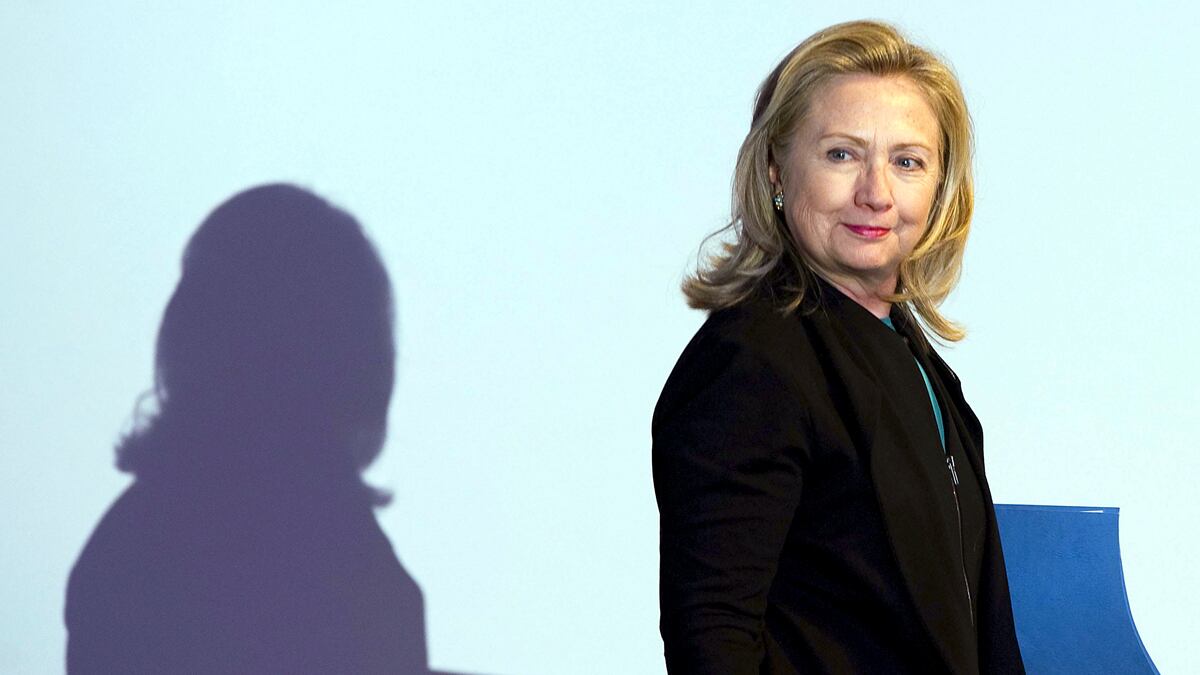It wasn’t easy for Hillary Clinton to hammer out a deal with Chinese leaders for the freedom of dissident Chen Guangcheng. But what made it doubly difficult was that she had to do it twice.
The process was marked by missteps and misunderstandings and could still fall apart at the last minute. The secretary of state’s team was left feeling caught between Beijing’s hardline regime and the shifting moods of the blind activist, according to administration officials who declined to be identified. Clinton had worked hard to ensure that it was safe for Chen to leave the protective custody of the U.S. Embassy, only to see that agreement fall apart and her mission seemingly in tatters.
If all goes well, Chen will soon leave his native country for a period of study at New York University, a face-saving arrangement to defuse the crisis. But the Obama administration is still being extraordinarily cautious, with officials determined not to relax until Chen’s passport is stamped and he is on a U.S.-bound plane.
“There were serious, serious flaws in our strategy as a government,” Rep. Chris Smith (R-N.J.) told me in a video interview, a day after he took a dramatic call from Chen at an emergency House Foreign Affairs Committee hearing. “The idea that this had to be done in a hurried way before the big dialogue in Beijing, to get it off the table, to push him out the door—even though he was saying I want to stay in China—there needs to be a time of deep reflection before he decides ... A bad deal was crafted. He was given over to the Chinese dictatorship.”
But Clinton was in a delicate position, given that she was about to participate, with Treasury Secretary Tim Geithner, in an economic summit in Beijing. There is little question the clock was ticking.
The key to the first phase of the showdown was that the previously jailed Chen saw himself as a new kind of dissident: one who would stay and fight in his country rather than seeking asylum abroad, where his influence would be diminished. Clinton fought hard to strike the original agreement. Under that deal, Chen was transferred from the embassy to a local hospital, where he was treated for three broken bones in his foot, injured during his escape from house arrest. Chen’s wife urged him to take the deal.
But no sooner was the 40-year-old activist out of U.S. hands than he began to waver. Some American officials got the impression he was torn between his desire to stay in China and his fear about how he and his family would be treated
“He had a change of heart,” a senior State Department official told reporters.While in the hospital, another senior department official said, Chen “indicated, after talking with his wife, he wants to come to the United States for studies” and also told Ambassador Gary Locke “that he was embarrassed by saying to Secretary Clinton that he wanted to kiss her ... He thought that he may have offended her.”

That turnabout placed Clinton in the awkward position of asking Chinese officials to renegotiate an agreement they had reached 24 hours earlier, and they made clear that they were amazed at being asked to do so.
At the same time, U.S. officials believed that China’s leaders did not want their human-rights record to heat up as a major issue in the presidential election and wanted to be rid of the distraction the Chen case had become.
By Friday, U.S. officials were in regular phone contact with the hospitalized Chen, who was celebrating his son’s 10th birthday, and Clinton sounded optimistic in a session with reporters Friday. The secretary said she is “encouraged” by the official Chinese statement “confirming that he can apply to travel abroad” for university study and that “progress has been made to help him have the future that he wants.”
Having seen one agreement blow up in her face, Clinton was choosing her words carefully. But State Department officials are optimistic that they have weathered the crisis.




